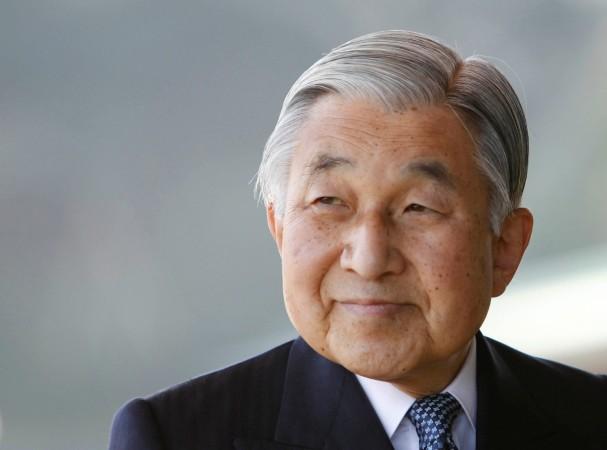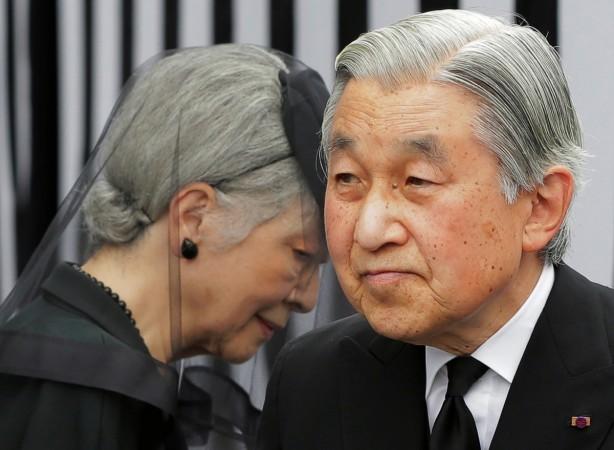Japan's Emperor Akihito is set to step down from the Chrysanthemum throne on April 30, 2019, and this will be the first retirement in the imperial family in 200 years. A day later the emperor's son Crown Prince Naruhito is likely to ascend the throne.
The decision was taken on Friday, December 1, in a meeting attended by Japanese Prime Minister Shinzo Abe, Supreme Court judges, parliamentary leaders, and members of the imperial family. All the members agreed on the date and Abe, after the meeting, said that he was "deeply moved" by how "smoothly" the decision was made by the Imperial House Council.
"The government will make utmost efforts to ensure that the Japanese people can celebrate the emperor's abdication and the succession of the crown prince," Agence France-Presse quoted Abe as saying.

Akihito, in 2016, had expressed his wishes to step down from the Chrysanthemum throne citing his age and health issues and his plans had shocked the people of Japan. Now that Akihito has said that he wants to step down, the procedure must be completed in three years. The country has also decided to give in to his wishes as he has had quite a few health complications and has been treated for prostate cancer and also had a heart surgery.
Speaking of the abdication, Abe told reporters: "This is the first abdication by an emperor in 200 years and the first under the (post-war) constitution." While the decision and the date have received the nod of the Imperial House Council, the cabinet is expected to decide it formally on December 8.
Akihito is the 125th person to take on the throne and has been the Emperor of Japan since January 7, 1989, after the passing of his father Emperor Hirohito. The 83-year-old emperor is much loved and revered by the Japanese people. The citizens have always looked up to the emperor and even considered them divine. Even though the emperor has no political power, the post-war constitution defines the emperor as "symbol of the state and of the unity of the people."

Breaking 2,600 years of tradition, Akihito married Empress Michiko, a commoner, after meeting her on a tennis court. The two have since tirelessly worked for the people of Japan. "Both the emperor and empress thought tirelessly about the people," the Independent quoted Taeko Ito, a 72-year-old caregiver as saying. "Now he is elderly and I wish from my heart that he can have a rest."
Echoing Ito's thoughts, Jeffrey Kingston, director of Asian studies at Temple University Japan added: "He redefined the job. He wanted to modernise the monarchy and take care of the unfinished business... and bring the imperial household closer to the people. "He's been remarkably successful on all fronts. He is deeply admired and respected. His moral authority is unquestioned."
Japan now looks forward to a new era that will come into effect from May 1, 2019, the day Crown Prince Naruhito succeeds Akihito.

















